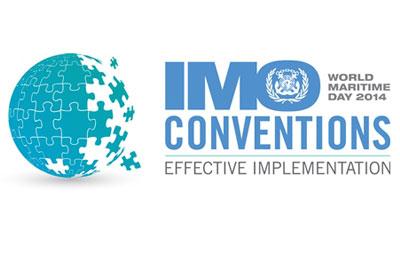
World Maritime Day focuses on promoting effective implementation of IMO shipping conventions
Vice-President Siim Kallas, European Commissioner for Transport and Mobility, urged further international cooperation to encourage flag states to accede to and apply the International Maritime Organization's (IMO) global shipping conventions. The theme for the 2014 World Maritime Day on 25 September is 'IMO Conventions - effective implementation'. As delegates from the world's flag states gathered at the IMO to celebrate this event, Vice President Kallas recognised the need for global shipping regulation and enforcement and thanked the Secretary-General of the International Maritime Organization, Mr. Koji Sekimizu, for the good cooperation between the IMO and its partners and the European Commission so far.
Vice-President Kallas said: "Our common aim is to promote quality in global shipping, improvements in safety and environmental protection and the working conditions of seafarers. As shipping is a global industry, I regret that several key conventions, such as the Conventions on Ship Recycling, on Ballast Water Management or on Hazardous and Noxious Substances have not been ratified yet. We are working to improve safety, environmental protection and the working conditions of seafarers. By focusing not only on the accession of flag states to the international conventions that address these aims, but also on an effective national infrastructure to put such conventions into practice, we underline the continuing need for flag states to take up their responsibilities."
The context
Every year during the last week in September the International Maritime Organization celebrates World Maritime Day. The theme for this year is 'IMO Conventions – effective implementation'. Over the years, IMO has developed and adopted more than 50 international conventions, aimed at preventing accidents or environmental damage; at mitigating the negative effects of accidents when they do occur, or at ensuring that adequate compensation is available for the victims of such accidents. While most of these are in force and have done so much to make shipping safer, more efficient and more environment friendly, there are still several conventions for which a slow pace of ratification and a lack of implementation are serious causes for concern.
Within the EU many of these conventions have already been incorporated into EU legislation and are applied by EU Member States, but are still not in force globally due to insufficient ratifications – e.g. the 2012 Cape Town Agreement on Fishing Vessel Safety, formerly the 1993 Torremolinos Protocol – (Directive 97/70/EC ); the 2009 Hong Kong Convention on Ship Recycling (Regulation (EU)1257/2013 ). From the Commission's viewpoint to improve global shipping quality and ensure that there is a level playing field, there is a need for such conventions to be implemented on a worldwide basis. From time to time, the European legislator applies the respective requirements of the conventions earlier or introduces additional requirements deemed legitimate for the protection of life at sea or prevention of pollution from ships.
Vice-President Kallas echoed the view of the IMO that for an IMO convention to be properly effective, it needs early entry into force, widespread ratification, effective implementation, stringent oversight of compliance and vigorous enforcement.
For more information:
http://www.imo.org/About/Events/WorldMaritimeDay/WMD2014/Pages/default.aspx
Details
- Publication date
- 22 September 2016
- Author
- Directorate-General for Mobility and Transport
